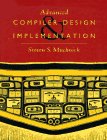
Programming Languages and Translators
Fall 2005
|
|

| |
| COMS W4115 Programming Languages and Translators Fall 2005 |
||
| Home | Project |
| General Information | ||||||||||||||||||
| Class meets Tuesdays and Thursdays, 11:00 AM - 12:15 PM, 702 Hamilton | ||||||||||||||||||
| Staff | ||||||||||||||||||
| ||||||||||||||||||
| Please begin email subject lines with [COMS 4115] | ||||||||||||||||||
| Overview | ||||||||||||||||||
|
The goal of PLT is to teach you both about the structure of
computer programming languages and the basics of implementing
compilers for such languages.
The course will focus mostly on traditional imperative and object-oriented languages, but will also cover functional and logic programming, concurrency issues, and some aspects of scripting languages. Homework and tests will cover language issues. You will design and implement a language of your own design in a semester-long group project. While few of you will ever implement a full commercial compiler professionally, the concepts, techniques, and tools you will learn have broad application. |
||||||||||||||||||
| Prerequisites | ||||||||||||||||||
| Java fluency: You will be writing a large Java program and must know the language well. | ||||||||||||||||||
| COMS W3157 Advanced Programming: You will be dividing into teams to build a compiler, so you need to have some idea how to keep this under control. Quick test: you need to know about Makefiles and source code control systems. | ||||||||||||||||||
| COMS W3261 Computability and Models of Computation: You will need an understanding of formal languages and grammar to build the parser and lexical analyzer. Quick test: you must know about regular expressions, context-free grammars, and NFAs. | ||||||||||||||||||
| Schedule | ||||||||||||||||||
| Required Text | ||||||||||||||||||
 Alfred V. Aho, Ravi Sethi, and Jeffrey D. Ullman.
Alfred V. Aho, Ravi Sethi, and Jeffrey D. Ullman. Compilers: Principles, Techniques, and Tools. Addison-Wesley, 1985. Long the standard text on compilers, the ``dragon book'' is now a little dated. It remains one of the more readable books on the topic, and is written by our own Prof. Al Aho. |
||||||||||||||||||
| Optional Texts | ||||||||||||||||||
 Michael L. Scott.
Michael L. Scott. Programming Language Pragmatics Morgan Kaufmann, 2000 A broad-minded book about languages in general, but has less on practical details of compiler construction. |
||||||||||||||||||
 Andrew W. Appel.
Andrew W. Appel. Modern Compiler Implementation in Java. Cambridge University Press, 1998. The opposite of Scott: focuses on compiler construction, not language design issues. |
||||||||||||||||||
 Steven S. Muchnick
Steven S. Muchnick Advanced Compiler Design and Implementation. Morgan Kaufmann, 1997. A very extensive book on many aspects of compiler design. Starts about halfway through Appel and goes much farther. Recommended for serious compiler hackers only. |
||||||||||||||||||
| Class Policies | ||||||||||||||||||
| Grading |
40 % Project 20 % Midterm 30 % Final 10 % Homework |
|||||||||||||||||
| Collaboration | You will collaborate with your own small group on the programming project, but you may not collaborate with others on homeworks. Groups may share ideas about the programming assignments, but not code. Any two groups found submitting similar code will receive zero credit for the whole assignment, and repeat offenses will be referred to the dean. See Columbia academic policies for more details. | |||||||||||||||||
| Late Policy | Zero credit for anything handed in after it is due without explicit approval of the instructor. | |||||||||||||||||
| Copyright © 2005 Stephen A. Edwards | Updated Wed Nov 30 17:33:40 EST 2005 | All Rights reserved |